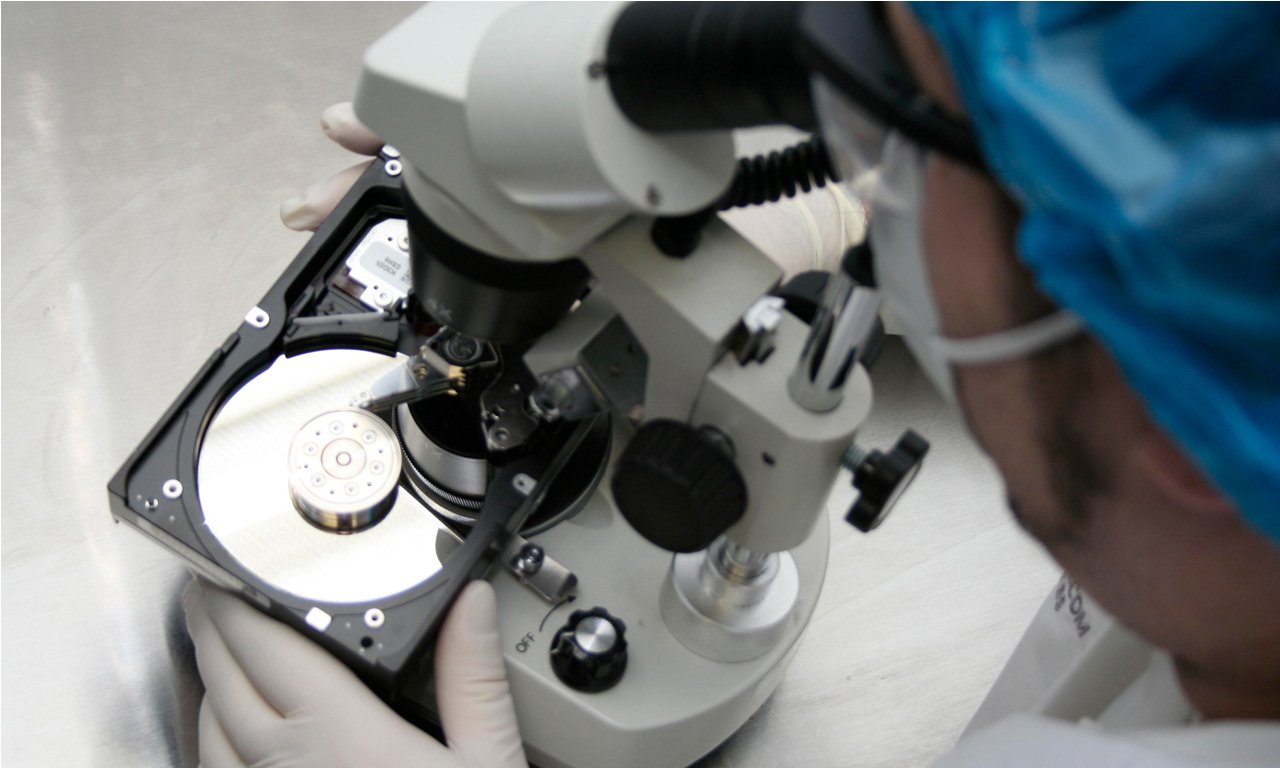Why Implement Data Security in your Computer System?
By Tom
If you are working in the business industry, you will undoubtedly utilize digital data for every transaction and operation. You are also aware that these bits of data are essential and confidential for the business. Furthermore, data must be stored in a safe and secured storage device or facility. This is to secure the confidentiality and privacy of your company’s details and connections.
Data is very important when it comes to the compilation and records of an organization. It serves as the primary basis on how they can track their operations. They can also conduct monitoring based on the changes happening to the data. It contributes to the progress and downfall of an organization.
What is Data Security?
Data security deals with the process of securing your data from unauthorized access and data loss during its entire life cycle. Data security consists of data encryption and key management strategies that protect the data system through all of the applications and platforms.
Different organizations worldwide are investing in immense data security with the help of information technology cybersecurity capabilities to safeguard their valuable data. They have various reasons why they choose to have data security. Some of these reasons are for protecting a brand, intellectual property, and customer details. It can also be for providing controls for critical projects. The main details that the organizations take seriously are the people, processes, and technology.
Data security is a vital aspect of the IT organizations of a different type. It is also known as information security or computer security. The common examples of data security are data backups, data erasure, and data masking. Encryption is the key data security measure where the digital data, software or hardware, and hard drives are encrypted. Thus, it makes the data unidentified for unauthorized users and cyber hackers.
One of the most popular data security performed is by using authentication. Through authentication, the users must require a password, biometric data, code, or other forms of data. This is to verify the identity of the one accessing the data or system before it is granted to utilize the information.
Data security also plays an essential role in the medical field. Health records are very important to be stored and kept in a safe storage device or platform. Health practitioners also implement electronic medical record privacy. This is to provide awareness about the rights of the patients when it comes to their personal information.
What are the types of data security?
Data security software protects the system or network from cyber threats, which might cause damage or loss to data. It may also secure other platforms or even the operating system itself for the whole application. The main goal of data security software is to determine the rules and strategies to combat online security conflicts.
Here are some of the kinds of data security that would be helpful for you:
- Network Layer Security
The utilization of cryptographic techniques also secures the TCP/IP known as the Internet Protocol, together with other internet protocols which have been created for securing emails online. These techniques consist of SSL and TLS for the engagement of the website, PGP for emails, and IPSec supports network security.
- IPSec Protocol
The IPSec Protocol was primarily created to guard the interactions by the use of TCP/IP. This protocol gives security and verification for the data. Through cryptography, the data is changed by using security methods.
- Email Security
The security imposed to protect the content and access of a specific email account is considered as email security. Electronic emails are created, saved, and sent in various step-by-step procedures that start from the structure of the message. An email security software is used by the service providers to safeguard the email accounts of the subscribers and data from cyber hackers.
Effective ways on how to improve data security
Data breaches usually happen on high profile companies holding massive confidential and important information. These cyberattacks emphasize the vulnerable side of the security strategies of the organizations. Data security is essential in the general status of a business. All of your transactions, connections, communications, and records must have intense protection. This is to save your files from the eyes of those cyber hackers who might be interested in accessing your database.
If a data breach leaks in your organization, it will affect your reputation and raise questionable thoughts about your security strategies. Therefore, here are some ways to strengthen your security strategies to avoid cyber threats and data breaches on your business.
- Secure the data itself, not just the surrounding area.
Your first instinct might be providing security measures around your working station. Most of the business organizations spend 90% of their budgets to empower their Firewall technology. Little did they know, there are so many possible ways to counteract the functions of the firewall. Customers, suppliers, and workers can have access through your walls and later on getting into your data. In this regard, you should secure your data itself more than focusing on the perimeter.
- Be attentive about insider threats.
It is a lot easier to determine threats in your organization that are coming from the
outside. Furthermore, the most difficult security threats that you are looking for is when it originates from the inside. The persons inside your area can have greater interaction with your files, hence making them have the potential to hurt you with what they already know.
Insider attacks are hard to detect. It is like when an employee clicks on an email believed to be sent by a trusted source and later on spreading malware infections. These types of cyber threats are the most commonly occurring data breaches across the globe.
- Data encryption.
Since advanced technology results in the creation of various digital devices, people tend to work on their personal devices. Make sure that your personal devices store data in an encrypted way and retain encrypted even when you transfer them from one location to another.
- Test your data security.
If you are planning to install additional antivirus software or application to your system, think twice about it as recent studies showed that you should have a professional team to conduct a security audit. In this way, it can reveal possible roots of data breaches. You can also have random monitoring around your office and look for something unusual on your employees’ desks. If you are going to search harder, you can see sticky notes or other means of writing passwords that are exposed to the public.
- Delete repetitive data.
Some organizations deal with confidential information as part of their transactions. Some of them are the healthcare, education, public, and financial sectors. Ensure the proper disposal of your valuable information to secure it from being forgotten or stolen later on. Having a secured system of shredding data that can modify redundant data is very helpful. Even if the data is already deleted, make sure that it will never be deciphered after. It will serve you a long way and give you peace of mind when it is deleted on your system.
- Invest more time and money on data security.
Many organizations admitted that they have been spending more time and money in improving their data and cybersecurity. The real thing is when you don’t pay attention to it, you are making your business open and expose to possible cyber threats that could harm your company.
Big organizations commonly worked on sensitive data. That is the reason why they think that data security is a must to have within their system. They are also appointing security officers, frequently, to secure the files of board-level personnel. This is also one way to protect their data within the external environment where the information is stored.
- Set up strong passwords.
Relaxed and simple passwords make it easier for hackers to guess them. Generic passwords for your critical accounts can be harmful to your data because even the unauthorized person can access your account. Establishing strong passwords can be the first stage in improving your data security.
Utilize complex passwords and make sure to change them every 90 days. Do not use passwords such as “1234”. Do not save your passwords on a piece of paper and leave it on your workplace where other people can find them.
- Conduct regular program updates.
Ensure that your computers are updated and appropriately patched. This is commonly the best strategy to secure sensitive data. If your system is an old version, it is vulnerable to modern cyber threats. Hackers also develop techniques and tools for infecting various systems. Poor quality of data security is a piece of cake for them.
Therefore, your data security applications must always be updated to endure cyber threats. Ransomware attackers are continuously adapting to impose a threat on the weaknesses of the older versions of systems or applications. It is recommended that regular updates can save you from future cyberattacks and minimize their damages.
- Just like the software, have regular data backups.
Data backups are the most critical part of the IT security techniques. With the help of these data backups, you can save your transactions for the future and accidental deletion of your files. Data backups should be stored in a remote area away from the common places where most of the people are going in and out.
Also, make sure that you will use high-quality external devices and use them properly. In this way, you won’t be encountering another problem which might arise from storage device failures.
- Establish a company security mindset.
Everyone in your organization has access to passwords and usernames to keep your data secured. The IT administrators must regularly remind their higher officials and employees not to share login information with anyone outside the organization.
As a general note, data security is everyone’s duty. It is not only limited to those people in the IT data security team. They are just the ones leading the prevention to protect your sensitive and valuable data. Moreover, the people involved in the organization must take full responsibility for maintaining the data system’s security and confidentiality.
How to keep your personal information secure online?
Personal information is very important for each one of us. Personal information protection must be properly observed to avoid identity theft. There are four helpful strategies to do it. Make sure that you keep this in mind to secure your personal information.
- Know to whom you are sharing your information.
- Securely dispose of your personal information.
- Raise questions before sharing your personal information.
- Maintain high-alert data security for your digital devices at all times.
Be careful with impersonators.
Make sure that you personally know the person whom you are sharing your information. Do not share information over the phone or through emails. If a company initiates that they are the ones who sent the email, search them through your Internet browser to confirm their authenticity.
Carefully dispose of your personal information.
If you are planning to dispose of your computer, remove all the important and sensitive data that you have stored in it. You can use a wipe utility program to clean the whole hard drive.
On the other hand, in disposing of a mobile cell phone, check your user’s manual and look at how to delete its content permanently. You can also perform data transfer to another device before you completely dispose of it. Remove the SIM card, eliminate all of your contacts, photos, files, and other documents that are stored in the cell phone.
Encrypt your personal data.
Ensure the safety of your Internet browser. Use encryption applications that can shuffle the information that you send through online. This is to safeguard your online transactions. There is a lock icon on the status bar of the Internet browser. It means that all of your information entered online will be safe when it is transferred. Search for that lock icon before you send any personal or confidential information online.
Keep the privacy of your passwords.
Use complex passwords to protect your personal information. Be creative in creating your passwords. Do not use the usual details like your birthday, phone number, or anything that is obvious about you. You can work on using special characters and substitution of words or letters.
Do not excessively share your social networking sites.
Avoid posting too much information about yourself. It is an invitation for cyber thieves to get your information and create questions about your accounts. Therefore, they can use it to get your money and personal information. You should limit the people who can have access to your networking page. Never post your full name, address, and other sensitive information on public sites.
Be wise in using Wi-Fi connections.
Before you use Wi-Fi connections in public places, make sure that your data is protected. Using an encrypted website, it only protects the data that you have uploaded and downloaded from that specific site. A secure wireless network can help you to protect the information that you have sent to that network. Avoid using networks that you are unsure of because it might harm your account.
Secure your digital devices like your laptops.
Store your financial information on your laptop only when it is necessary. Avoid using automatic login functions that can save the username and passwords of your account. Make it a habit that you will log off your laptop when you are done using it. In this way, even when your laptop is stolen, it will be difficult for the thieves to access your personal information.
Always read privacy policies.
Reading takes you places. It will increase your knowledge of everything that you do. Privacy policies can help you to understand the coverage of your data better. These policies can tell you how a specific site can maintain access, credibility, security, and control of the information that it gets from the users. These also explain how they use that information or if they are giving it to other external sites.
In the modern world that we are living today, we are most likely dealing with digital data and information. Therefore, data is essential in every transaction that we create online. We should always be observant of everything that we see and access through the Internet. Cyber hackers use various opportunities to attract online users to be their victims.
Data security is the strategy that people and organizations use to protect their important and valuable data. It is also a way to improve a specific company’s services to secure the information of their transactions, customers, and partners.
Data must be appropriately secured to save the reputation and essential records of an organization. To do this, you must employ quality data security that can manage and monitor the stability of your data. It also gives you a secure feeling that you are comfortable working in an environment that is free from cyber threats and attacks. Advanced technology continues to grow and develop. Thus, we must also ensure that we are getting along with these changes.






















Great company!
I think it is the best company in the world regarding data recovery. They take all types of recovery cases with great responsibility and ensure they work with the best possible solution for your specific case. I highly recommend it.
Superb effort
Superb effort from werecoverdata. I had no idea how to fix it when I faced a horrible problem with my RAID NAS. But they solved it very quickly and superbly. I recommend them!
Fantastic results
Thanks to all staff of werecoverdata for excellent work and for getting my company data back! I got frustrated when a deadly drop damaged my hard drive. But they solved it!
Thanks
Few days ago my raid server is crashed dangerously. It was not starting any more. I tried in a various way whatever I know but I could not fix it. My uncle told me about WeRecoverdata. Then contact with them and they repaired it. Thank you guys.
Recover service
Those are suffering bad experience of getting a reliable and professional recovery service provider, definitely, they can choose werecoverdata. I highly recommend it.
Thanks a lot
The location is a bit hard to find out but eventually, I did. They recovered my hard drive, which was mostly dead. Thanks a lot.
Great response
Definitely weRecover team is great to solve that kind of hard drive problem. Great response and remarkable. They recovered my all data successfully within short time. I wanna give special thank to David. Thanks a lot man.
Liked Your Service
I have been using my HP laptop since 2016. Few months ago I could not open my laptop. After pressing the power button its showing nothing. My friend told me about that company. They recovered my laptop. Now its working perfectly. Thanks a lot WeRecoverData.
Pretty good experience
It was really pretty good experience. They are so professional, punctual and reliable. I strongly recommend it.
Remarkable Work
A lot of thanks to werecoverdata. You did really remarkable work. I was frustrated when lost my important data from a hard drive. I sent my hard drive to WRD then they got all the data back. At first, I couldn’t believe anyone can recover it since my computer tech said he can’t do it. All credit goes to werecoverdata.
Gorgeous service
Fantastic service from all the guys at werecoverdata. I was having pressure when corrupted data from my hard drive .Then I went there and they fixed it superbly.Thanks for removing the pressure!
Extremely well
I faced horrible problem but they solved it extremely well.My problem was that hard drive crashed dangerously.At this moment I thought the sky was broken on my head.Thank you for that.
Sensible
Thanks to WeRecoverData. You fixed the hard drive problem promptly. I am impressed… Anybody can rely on werecoverdata.
Well done
Thank you
Great work
Obviously great work from werecoverdata.Definitely no doubt about this company because they take seriously to solve any kinds of problem.I have lot of assurance at them.A lot of thanks to them.
Fantastic work
Oh Tom really fantastic work. You saved my important days. Raid 5 server damaged dangerously few days ago. But you fixed it well. Thank you for that!
Great efforts
All credits goes to werecoverdata for recovering raid server.I thought impossible to repair it but they was taken sensible and fixed it.Now I can fully trust on werecoverdata.All thanks to them.
Helpful Work
Werecoverdata, you did a really very helpful work.I was angry when my hard drive got dropped from my mistakes. I recommend the company and give a lot of thanks to werecoverdata.
Best service
After my hard drive crashed I was going to be totally mad. One of mu cousin suggested me to meet that company. I did and got the best service ever I had.
Remarkable Job
AWESOME service from WeRecoverData. I was almost mad when my pc crashed. A lot of valuable data in my hard drive. One of my friend recommend it. I thought it will not be possible.
But after all I got back my all data. Thank You WeRecoverData.